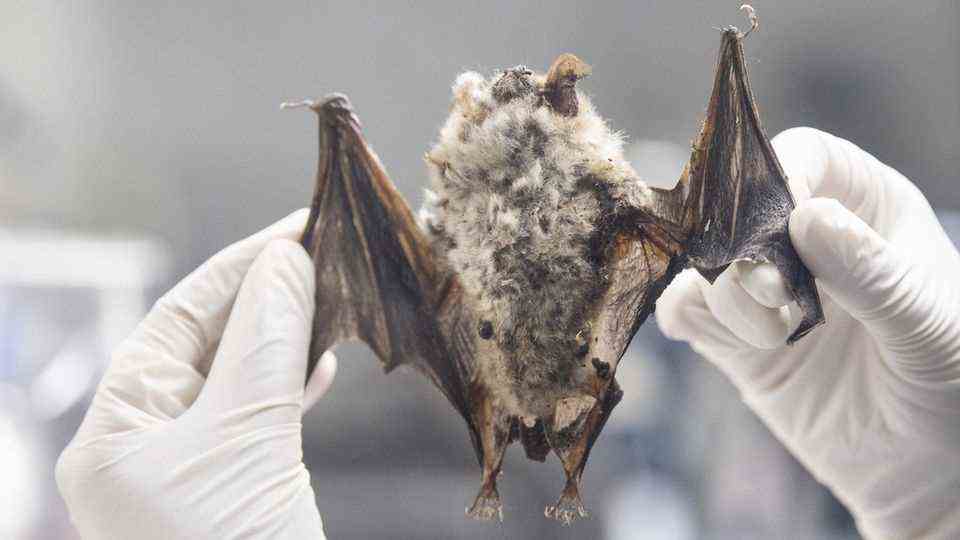Change in vaccination status
Chaos around Johnson & Johnson: Why millions of people are suddenly no longer fully vaccinated
Vaccination with the Johnson&Johnson vaccine alone is no longer sufficient for the status “fully vaccinated”.
© Dmitrii Guldin / Getty Images
A syringe and the matter of immunization against the corona virus was scratched. This made Johnson&Johnson’s single-use vaccine popular. But that is exactly what is becoming the problem. Millions of Germans lose their vaccination status.
Until now, one dose of Johnson&Johnson’s single-use vaccine was enough to be considered fully vaccinated. These times are over now. Since last Friday, the one-time vaccination is no longer sufficient to be considered fully vaccinated. This is now becoming a problem for three million Germans. They lost their vaccination status overnight. And we can’t change anything about it in a hurry.
What happened? By the beginning of next month, the digital vaccination certificates in Germany are to be adapted to the latest EU requirements and to findings on the effectiveness of the Johnson & Johnson vaccine. The aim is to implement the European Union’s requirement that vaccination certificates in the EU will only be valid for nine months after the basic immunization against the corona virus, as a spokesman for the Federal Ministry of Health said on Tuesday in Berlin. In the course of this, changed requirements for vaccination with the vaccine from Johnson & Johnson are to be implemented in Germany.
What will change for Johnson&Johnson vaccinates?
In Germany, one is only considered vaccinated with complete basic protection if a second vaccination follows the Johnson & Johnson initial vaccination, according to the spokesman. If possible, this should be done with an mRNA vaccine like that of Biontech/Pfizer or Moderna, as he confirmed. Full protection is necessary, for example, to comply with 2G access rules. A corresponding requirement has been in effect since the weekend and should now be technically implemented, said the spokesman.
This step is intended to comply with a recommendation by the Standing Vaccination Commission (Stiko). This recommends that all people aged 18 and over who have received a first dose of Johnson & Johnson optimize their immunization with a second dose of an mRNA vaccine. The optimization of the immunization with an mRNA vaccine as a second vaccination dose is recommended regardless of the time of the first vaccination – but with a minimum interval of four weeks. According to the EU-wide approval for this vaccine, on the other hand, only one vaccine dose is required for the basic immunization – the rules in Germany will therefore deviate from this in the future.
Less protection from Johnson&Johnson
This update was necessary because Stiko now assumes that the vaccine protection provided by Johnson & Johnson is insufficient. According to approval studies, the vaccine is 65 percent effective against the corona virus, but according to the Robert Koch Institute (RKI), more recent studies indicate “that the Janssen vaccine, unlike the other vaccines, has a comparatively low vaccine effectiveness compared to the Delta variant exists”. In addition, vaccine breakthroughs were relatively common. (More about this here)
A situation that Omikron tends not to improve. After all, the new corona variant has the reputation of being able to trick the immune system of vaccinated and recovered people even better. It is still unclear how well Johnson&Johnson protects against omicron. According to an information sheet from the RKI, however, it can be assumed that “after administration of a booster vaccination (third vaccine dose), there is a significantly improved protective effect against a symptomatic and severe infection with the omicron variant”.
The change in the regulation inevitably also affects those who have already been vaccinated a second time and have therefore already been considered “boosted” in some federal states. “People vaccinated with Johnson & Johnson’s vaccine must receive two additional doses of vaccine to be considered boosted,” the Department of Health announced. An mRNA vaccine should be used for this. The third dose would then correspond to the requirements of the so-called 2g+ rule. According to this, people with a booster vaccination do not have to present a current corona test in order to gain access to restaurants, for example. The short-term change also causes particular annoyance because those affected can only pick up the booster three months after the second vaccination. For example, as long as they have not received the third vaccination, stricter quarantine regulations apply to them again.



